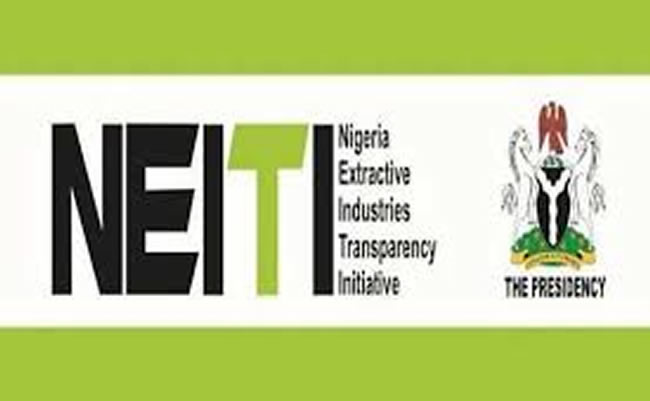Paragraph 1: NEITI’s Call for Clarity and Harmonization in Nigeria’s Tax Reform Bills
The Nigeria Extractive Industries Transparency Initiative (NEITI) has urged the Presidential Committee on Fiscal Policy and Tax Reforms to provide a comprehensive explanation of its strategy for harmonizing federal and state tax laws within the proposed tax reform bills presented to the National Assembly. NEITI’s primary concern revolves around the lack of clear guidelines for aligning these disparate tax systems and defining the roles of subnational governments in implementing the new legislation. This call for clarification stems from a detailed review conducted by NEITI, which, while acknowledging the potential benefits of the bills, identified critical gaps, particularly regarding their impact on the extractive industries—a sector central to NEITI’s mandate. The agency emphasized the need for transparency and public trust in the provisions of the bill, advocating for a robust public awareness campaign to accompany the implementation of the new tax regime.
Paragraph 2: NEITI’s Endorsement and Specific Recommendations
Despite its concerns, NEITI, echoing the stance of the Nigeria Governors’ Forum, endorsed the tax reform bills. The agency believes the bills hold the potential to modernize Nigeria’s tax system, broaden its tax base, and align it with international best practices. However, NEITI’s detailed review, presented in a memo to the National Assembly and the Presidential Committee, highlighted specific areas requiring attention. These include clarifying the roles of subnational governments, establishing clear criteria for resident and non-resident taxation, providing guidelines for valuing benefits-in-kind for employee taxation, and addressing the omission of partnerships and joint ventures in petroleum operations. NEITI stressed the importance of managing the transition process carefully to avoid administrative confusion and ensure stakeholder buy-in.
Paragraph 3: Focus on Extractive Industries and Digital Assets
NEITI’s recommendations focused heavily on the extractive industries, urging the inclusion of clauses to address alignment with state tax systems and resolve jurisdictional conflicts. The agency emphasized the need for reduced hydrocarbon tax rates for smaller operators to encourage industry participation and the expansion of incentives for carbon capture and renewable energy, aligning with Nigeria’s energy transition goals. NEITI also addressed the taxation of digital assets, supporting the bill’s alignment with global practices while calling for clear definitions of taxable assets, valuation guidelines, and exemptions for small businesses to facilitate growth. The agency also urged the inclusion of provisions to address the taxation of undistributed profits while considering the potential impact on small and medium-sized enterprises.
Paragraph 4: Addressing Resident and Non-Resident Taxation, VAT, and Stamp Duties
NEITI commended the bill’s approach to resident and non-resident taxation, particularly the provision for significant economic presence. However, it advocated for clear criteria to prevent disputes and enforcement challenges. While acknowledging the importance of minimum effective tax rates for foreign subsidiaries to combat profit shifting, NEITI stressed the need for international collaboration for successful implementation. Regarding Value Added Tax (VAT) and Stamp Duties, NEITI highlighted the need to mitigate enforcement challenges in the informal sector and compliance burdens on SMEs. The agency also called for a reassessment of tax rates for small-scale service providers and the simplification of Excise Duty on Services compliance processes. Robust digital tax administration tools were recommended to combat VAT evasion and fraud.
Paragraph 5: Incentives, Exemptions, and Capacity Building
NEITI strongly recommended expanding tax incentives to encompass renewable energy and other sustainability projects, criticizing the current limited emphasis on environmental initiatives. The agency also called for streamlined application procedures for economic development tax incentives and technical support for applicants. Furthermore, NEITI urged greater transparency in defining eligible sectors for stamp duty and VAT exemptions, along with lower stamp duty rates for priority sectors to stimulate investment. Recognizing the crucial role of tax administrators, NEITI emphasized the need for capacity-building initiatives and the adoption of data-driven monitoring systems.
Paragraph 6: Stakeholder Engagement and Dispute Resolution
Finally, NEITI emphasized the importance of robust stakeholder engagement, particularly with civil society organizations, offering to lead these engagements due to its experience in relationship management and trust-building. Regarding double taxation and dutiable instruments, NEITI recommended clear dispute resolution mechanisms, potentially through tax tribunals, for arbitration or negotiations. Reduced rates or exemptions for priority sectors were also suggested to encourage investment. This comprehensive approach to stakeholder consultation and dispute resolution underscores NEITI’s commitment to ensuring a fair, transparent, and efficient tax system that benefits all Nigerians and fosters economic growth.














